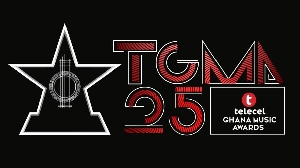Opinions of Tuesday, 10 January 2006
Columnist: GNA
Stop These Vendors of Poison
A GNA feature by Hannah Annor
Accra, Jan. 10, GNA - Travelling on a commercial vehicle especially `Trotro`, can at times be likened to a normal church service or any religious activity.
This is the moment when anxious and sometimes quack doctors' or peddlers of all manner of products manipulate innocent and sometimes gullible passengers to sing religious songs, pray to God for travelling mercies, before they declare their real intentions why they are on board.
It is common scene to see people selling magic chalk, magic plaster and herbal products that can cure ailments like diarrhoea and constipation.
After 30 minutes and at times over an hour of sermonising on the potency of the products, one would find passengers dipping their hands into their purse or pockets to buy the products with glee. Their anxiety can be explained since they have seen the messianic nature of drugs, with some products being imported from Asia to heal their painful hernia, sexual weakness, piles, menstrual problems and drive away witches and wizards from their homes.
The quack doctors, who often lacked scientific knowledge about the drugs they market are found at market centres, lorry parks, some with public address systems to market the medical products packaged in the form of soap, ointment, syrup and powder.
The marketing strategy is for products to be pegged at high prices and then reduced to the level of a pauper. The biblical quotation that God asked man to plant trees and use its leaves for medicine often feature in the persuasion strategy.
The magic wand to sell a product is when there are claims that the healing prowess was inherited from grandparents, through vision or extra sensory perception.
Managing information about herbal products could be very humorous and sometimes disastrous.
This writer was travelling in a Metro Mass Transport one day when a vendor of a medical product jumped into the vehicle to sell some sweets he claimed contained vitamin C, which could help reduce starch contents in food.
Voicing concern about this trend, Mr Ben Botwe, Deputy Chief Executive Officer in charge of Drugs Division of the Food and Drugs Board (FDB), has called for consumer activism to facilitate public boycott of such suspicious medical products, the GNA reported. He said it had become difficult for the Board to monitor the activities of some of these vendors who did not sell at the authorised herbal centres or pharmaceutical shops.
Mr Botwe said although the Board was playing its product surveillance and regulatory role, self-regulation from traditional medicine practitioners was needed to control the activities of its members. "The Board is working to bring on board some law enforcing agencies such as the Police, the local assemblies, Parliamentary Select Committees and other health institutions to monitor and control the activities of these practitioners", he said.
He said the Board would also intensify its educational programmes through workshops, documentaries, brochures and other programmes to increase awareness for consumer protection.
Mr Botwe called on civil society, especially the media to help educate the public on consumer protection, to harness government's effort to ensure consumer safety.
Recently, some branches of the Ghana Private Road Transport Union decided to give out identity cards to the vendors for easy identification in case of any problem, but the exercise did not achieve effectiveness, as most of them do not operate at specific locations. Even though traditional medicines are very effective for the cure of some diseases, and the initiative of some to manufacture them to serve as either supplement or substitute of orthodox medicines must be commended, it must be scientific to ensure safety.
Although the Centre for Research into Plant Medicine was playing its expected role, all stakeholders within the health sector must wake up to save Ghanaians from the secret killers. 10 Jan. 06












